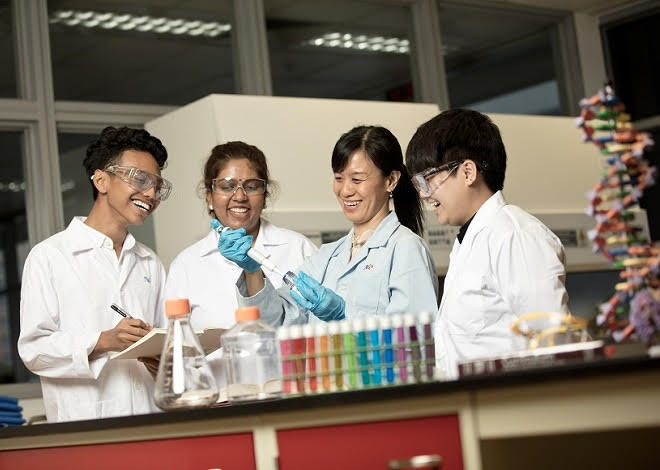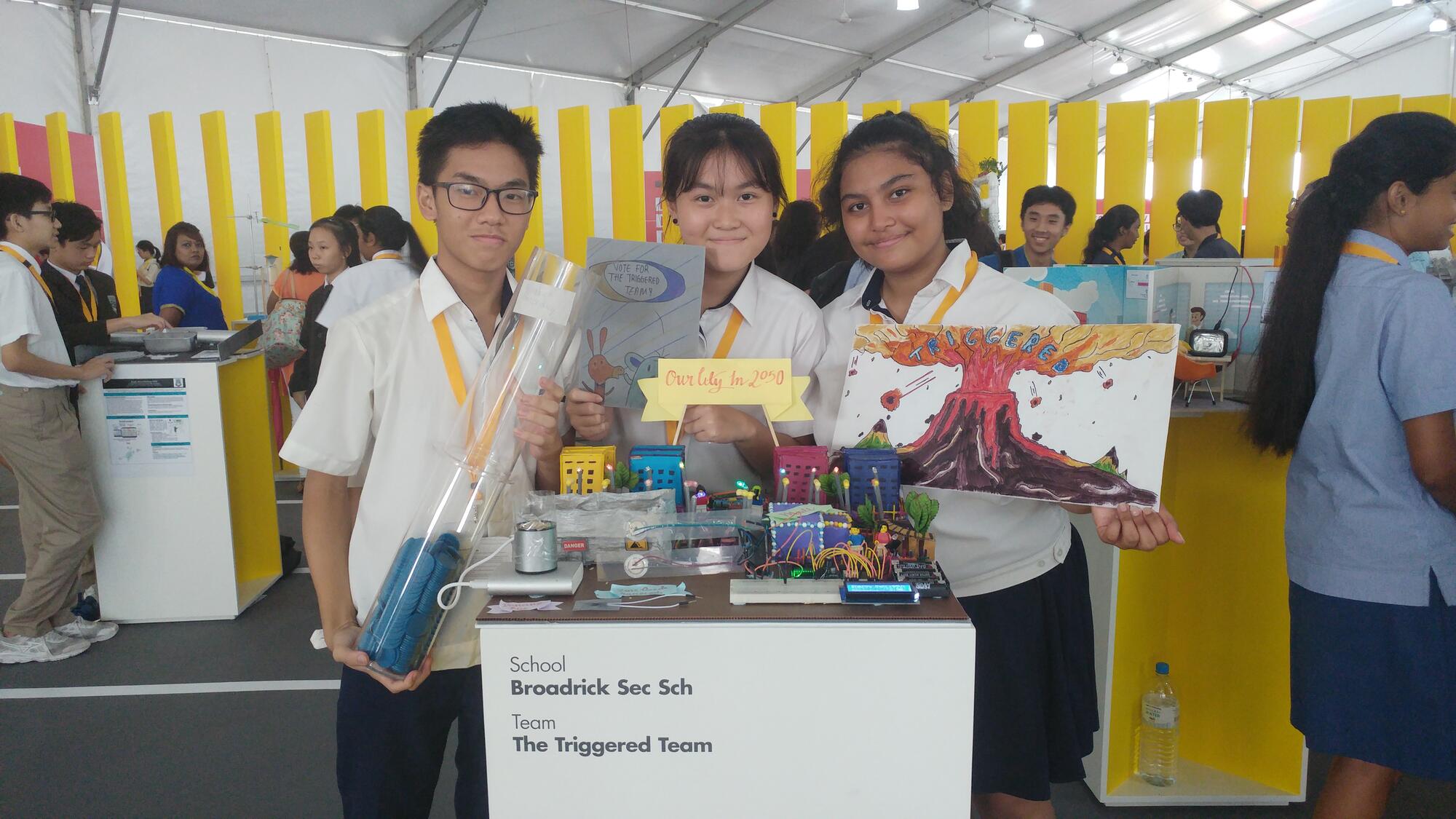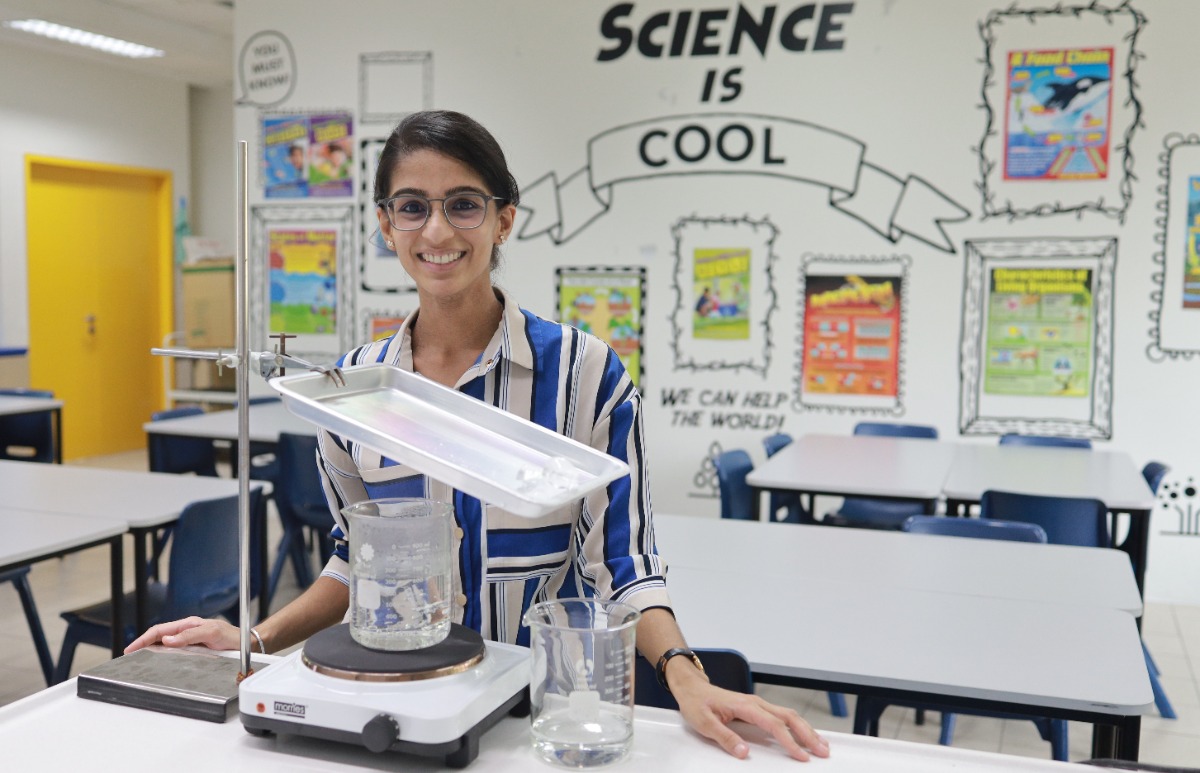Chian Hwey Miin, Nanyang Polytechnic, President’s Award for Teachers 2017 Finalist
Where most people would see a cup of coffee with a cardboard sleeve, Chian Hwey Miin sees an opportunity to teach her students about insulation.
Where people see straws, she sees a way to help her students visualise heat exchangers — devices that help refrigerators and air-conditioners work.
This is how the chemical engineering lecturer of 13 years rolls, using tangible, everyday materials to help her students understand esoteric concepts.
To be doubly sure of this, at the end of each lecture, she encourages her students — as many as a hundred of them — to write questions for her on slips of paper. She returns each slip with a personalised answer at the start of the next lecture.
She finds opportunities for her students to learn beyond their physical borders, too. In 2013, she collaborated with the Okinawa National College of Technology on an exchange programme with Nanyang Polytechnic, to work with their students on chemistry and biotechnologymini-projects.
A Higher Purpose
But she doesn’t stop there. Hwey Miin doesn’t just want her students to be work-ready — she wants them to be “life-ready”, too.
One way she does this is by encouraging them give back to society. “To be a happier person, you have to be a giver,” she says, and so she initiated Pay-It-Forward Day in 2012, rallying her Biologics & Process Technology students to raise funds for charitable causes, and show appreciation to those who had supported them in their pursuit of education.
They washed the cars of polytechnic staff for $10 each. Some sold pineapple tarts and second-hand books. One Diploma in Chemical & Pharmaceutical Technology student spent weeks after school painting a portrait of Lee Kuan Yew, which subsequently fetched $888 in an auction.
Over the next few years, the event grew to involve students throughout the polytechnic’s School of Chemical & Life Sciences, with some 820 students having participated since 2012 Hwey Miin has also received calls from other teachers in other schools wanting to organise similar events for their students.
She brought social awareness into the classroom as well, developing an entire Social Enterprise elective module on her own time. She arranged field trips to Dignity Kitchen, where her students had the opportunity to interact and work with the disabled; and Dialogue in the Dark, where they were led by visually impaired staff to carry out daily activities in pitch darkness to heighten their awareness and empathy.
She got Dignity Kitchen’s retail arm Dignity Mama to set up a one-day pop-up stall in the polytechnic, and had the students work with intellectually challenged youths at the stall to sell books and handicrafts – a humbling and eye-opening experience for her students. Even today, some of her students keep in contact with those youths, and visit the Dignity Mama stalls in various hospitals.
Life Lessons in Class
But sometimes, students need to help themselves before they can help others, so Hwey Miin introduced a 15-hour self-improvement elective called “Habits and Social Environment”.
She got students to write down their goals, schedules and weekly plans. She shared strategies and success stories, and got them to identify role models.
“School is a place that allows students to discover their own strengths, weaknesses and passions,” she says. “But it’s only when you teach them the tools – how to develop good habits and overcome challenges – that they can succeed.”
Hwey Miin recalls a bright student who was juggling two part-time jobs during school holidays to pay her school fees. The work commitments took a toll on her, and she wanted to drop out of school. But Hwey Miin observed that the she was able to understand concepts quickly.
She suggested that she try to look beyond her own circumstances and help some of her weaker classmates in their schoolwork during term time. She told her: “You can teach others. You learn better that way.”
Motivated by the experience of helping others, this student went on graduate with flying colours, eventually obtaining a chemistry degree from Nanyang Technological University.
“When the students go out to work, they are going to have to do a lot of learning themselves, and it is therefore important to also train each one of them as a person,” says Hwey Miin.
“You cannot be selfish about your own grades, or results or achievements. You need to go out and see what is out there. Also, when the time comes, if you are in a position to, you have to help others.”






